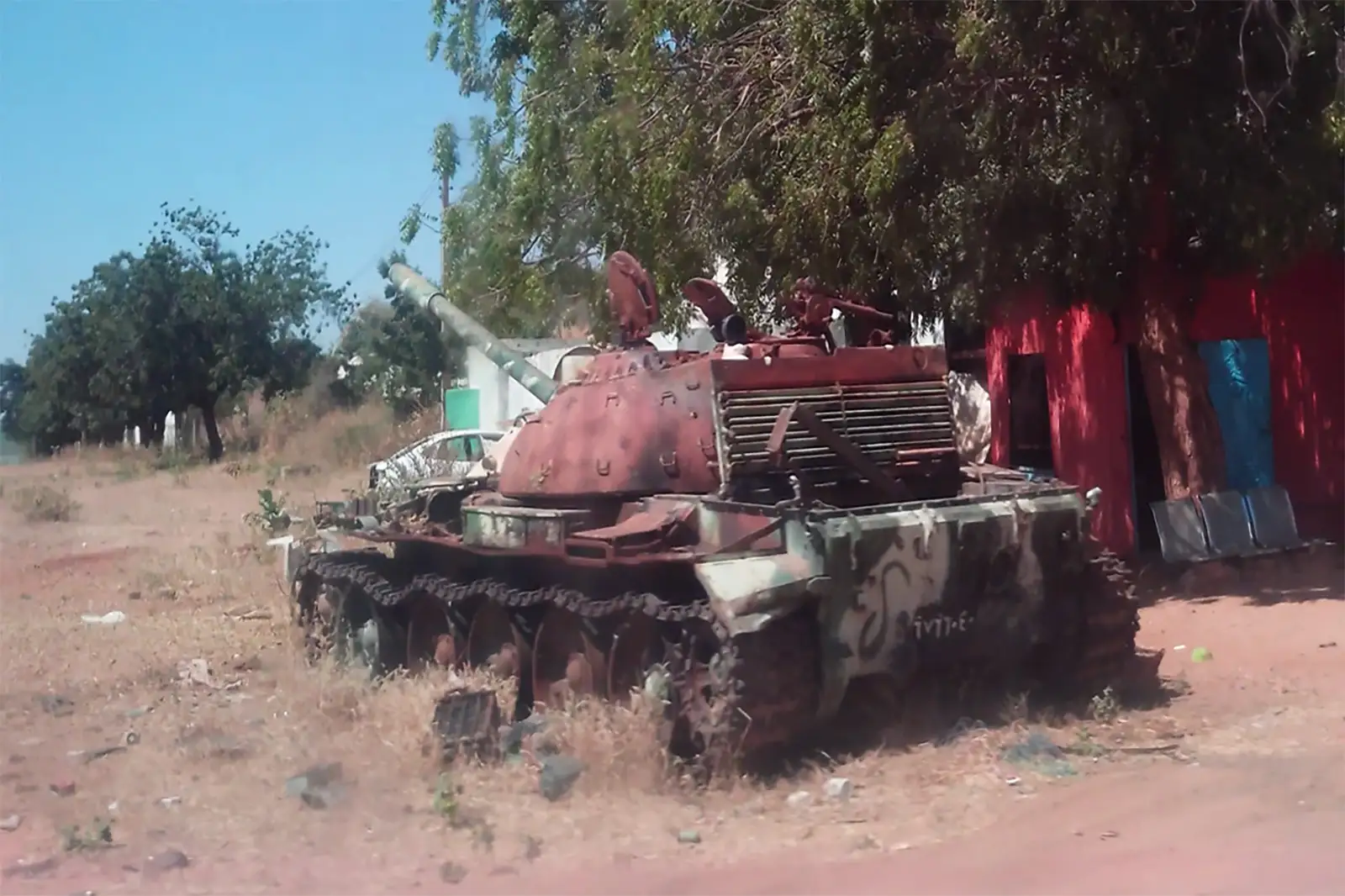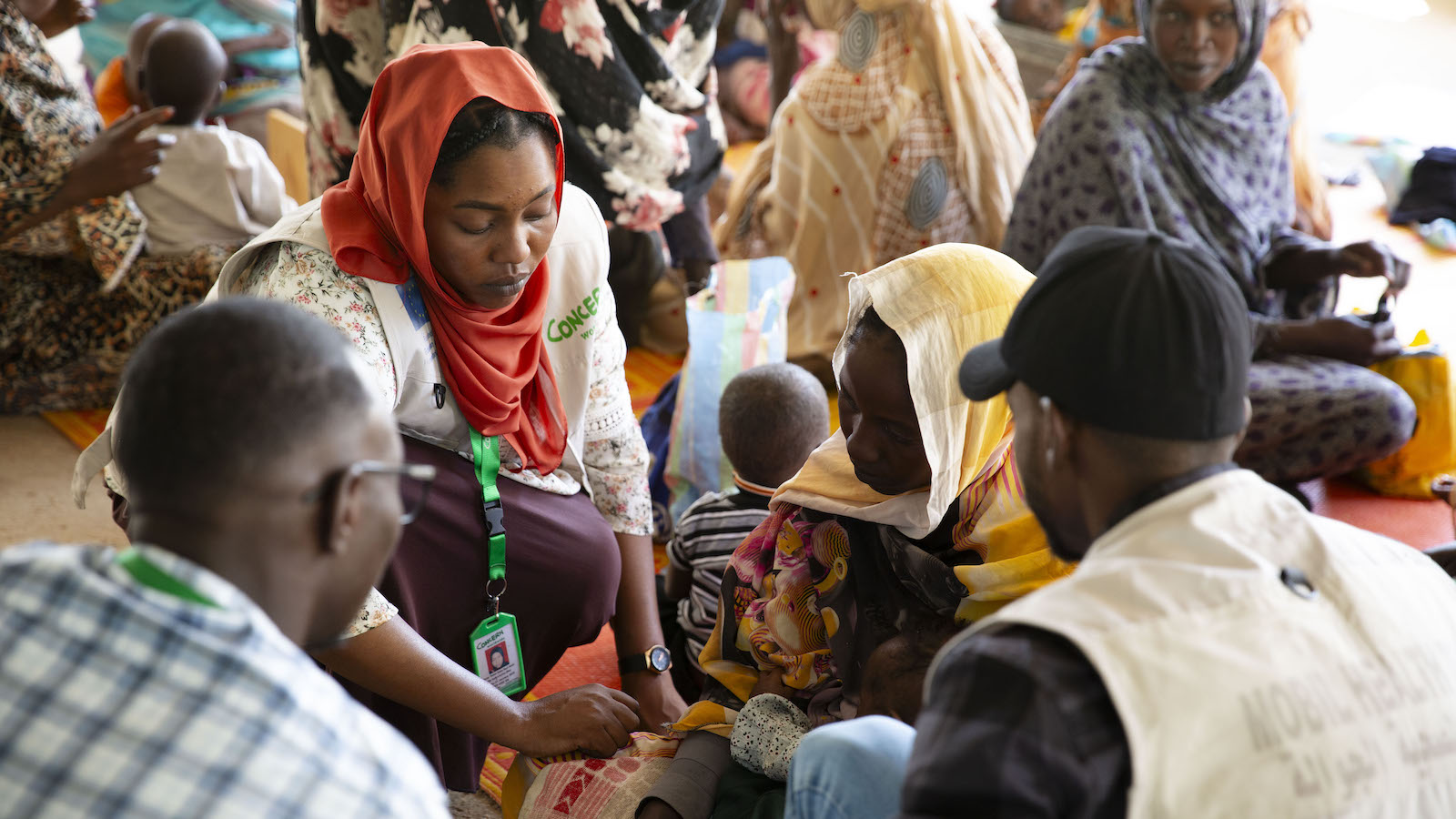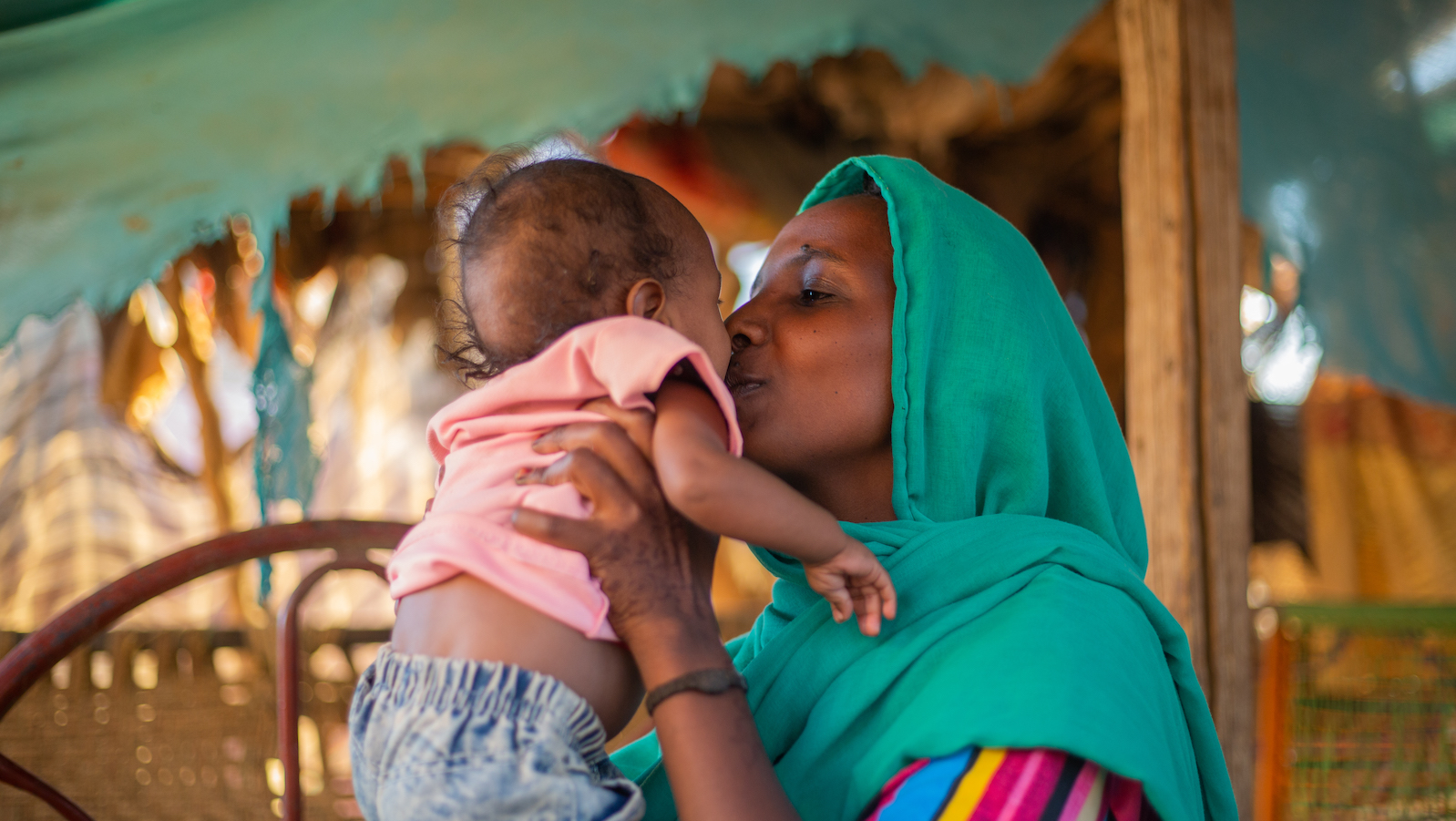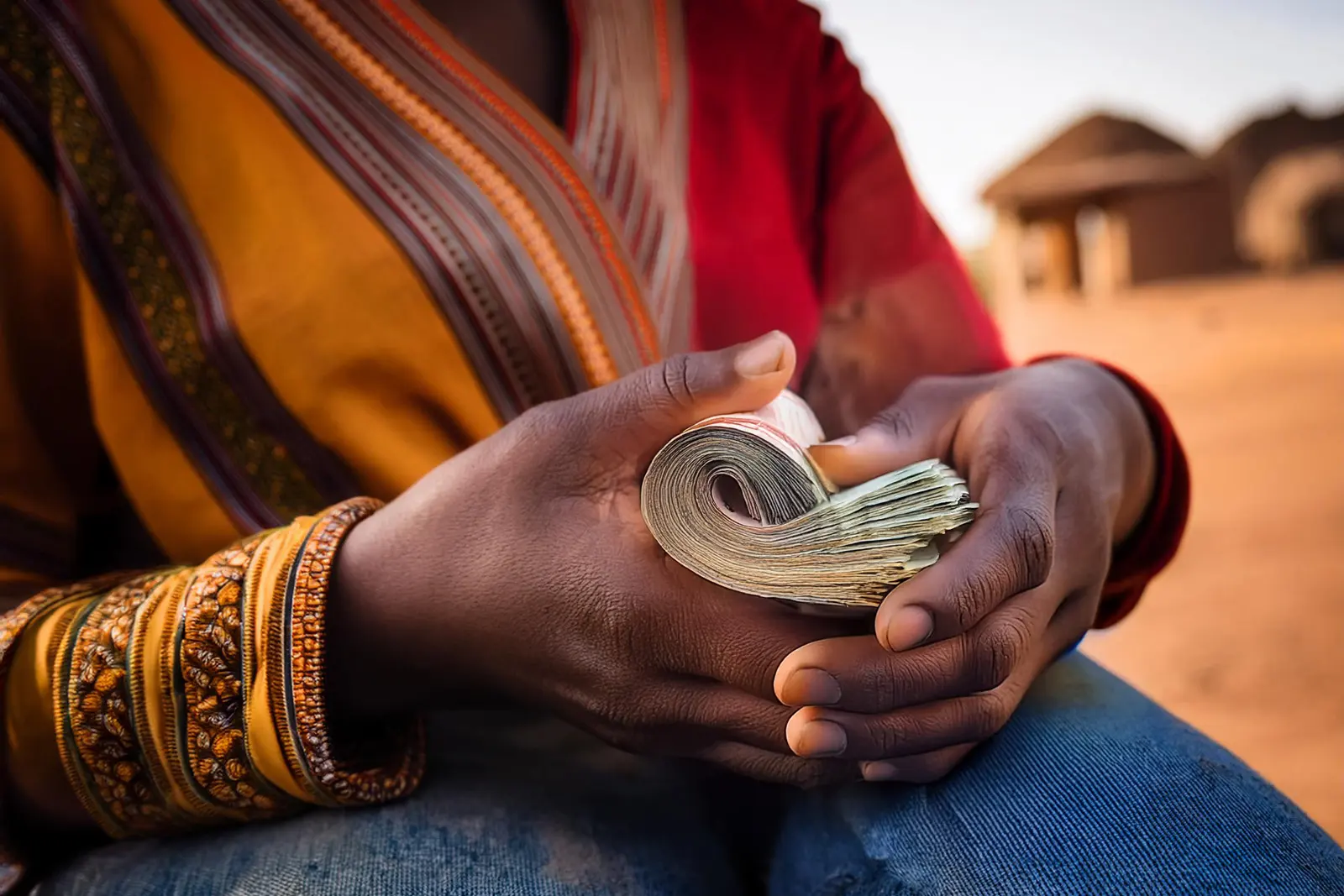Over 11 million people have been displaced from their homes by fighting in Sudan, many of them to neighboring countries. This is the story of one Concern staff member who had a close encounter with death and now lives with his family in a refugee camp in Chad.
A long history of bloodshed
Like many people from West Darfur, Yousif* has seen much conflict over the course of his life. “I first heard gunfire in 1984, when I was seven years old,” he says. “Our village was attacked by the Janjaweed – people were killed in their homes and on the roads as they went to the market, houses were burned down, and animals were taken.” Over the following decades, this would become a pattern across the state, with waves of violence followed by periods of uneasy calm.
"People I knew – even relatives – were killed"
In 2001 Yousif went to Khartoum, the capital of Sudan, to study economics. Two years later, word came through that his family’s home had been destroyed in an attack on their community by an armed militia group. “People I knew – even some relatives – were killed.” It was this event that finally forced his family to leave their village and seek the relative safety of El Geneina, a city near the border with Chad.
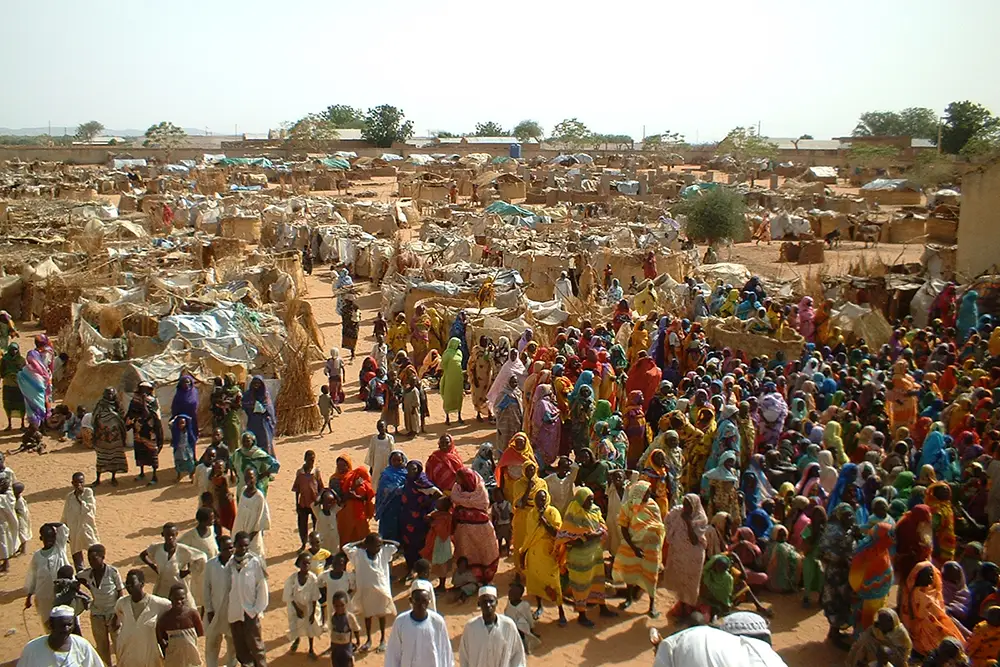
April 2023
Yousif finished his studies in 2006 and returned to West Darfur, finding work in El Geneina. By then, the situation was calmer, although the peace would occasionally be shattered by incidences of violence, including an attack on a camp for internally displaced people in 2019 that left 120 people dead and another in 2021 that killed 163. The former incident happened despite the presence of the UN peacekeeping force UNAMID, which was subsequently dissolved. In early 2022, Yousif joined the Concern Worldwide team in El Geneina.
"To us it did not matter – they were all humans"
Then, on April 15th 2023, everything changed dramatically. “My home was near some military bases, and we started to see a lot of activity – a lot of armed men in uniform and civilian clothes coming and going," according to Yousif. Word reached him that war had broken out in Khartoum between two rival elements of the army. It was only a matter of time before the conflict reached El Geneina and violence erupted all around Yousif and his young family.
“There were many attacks and many people were killed, at first mostly soldiers.” Soon though, civilians were also targeted, many of whom had been displaced to El Geneina by previous outbreaks of violence. Some had been living in camps there for nearly 20 years. Yousif and other men in his community formed a voluntary group to help bury the dead. It was a grim task. “Some of the men we buried were soldiers and some were civilians,” he says. “But to us it did not matter – they were all humans.”
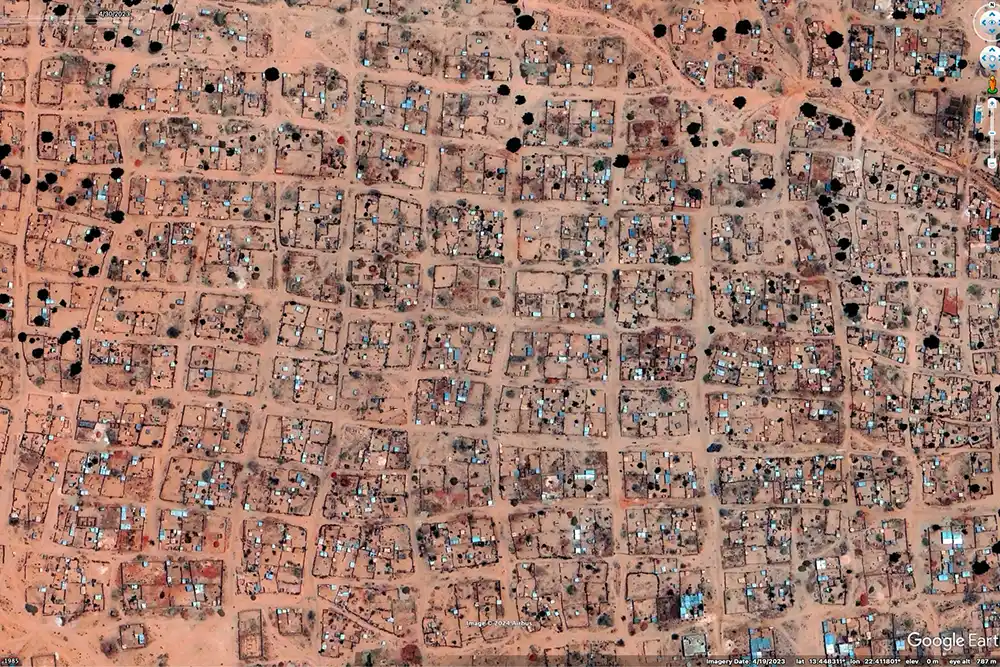
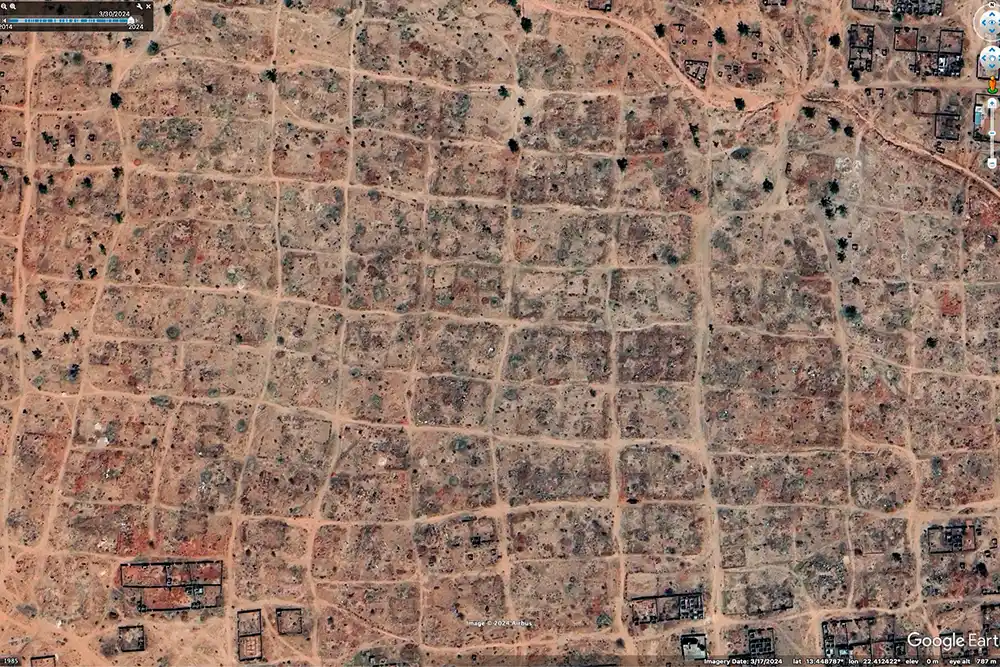
A moment of terror
The situation in West Darfur is extremely complex, but the ongoing conflict has been underpinned over the years by ethnic tensions, with members of one particular tribe often being on the receiving end of the violence. Yousif is of mixed heritage, a factor to which he attributes his survival.
“My neighborhood was taken over and there were armored vehicles outside my house. Although an officer assured us we would be safe, I decided to send my wife and 6 children to the center of the city for safety. She was 4 months pregnant at the time. I stayed to guard my home.”
"They put an AK47 to my head"
Within days, the situation deteriorated and armed men invaded Yousif’s home. “All of my possessions were looted,” he says. “They put an AK47 to my head and demanded the keys of my car. I had no choice but to hand them over.” Yousif was also questioned about his ethnicity, responding that he was a member of the tribe into which his mother had been born. He recalls the chilling words spoken by one of his captors: “You are lucky today we did not kill you.” Had his response been different, he was told “today would be your last day.”
After nine days of house arrest, Yousif was released and went to join his family in the city center. “I knew by then that we had no choice but to leave the country. It was too dangerous. My wife had already miscarried from the stress of the situation.”
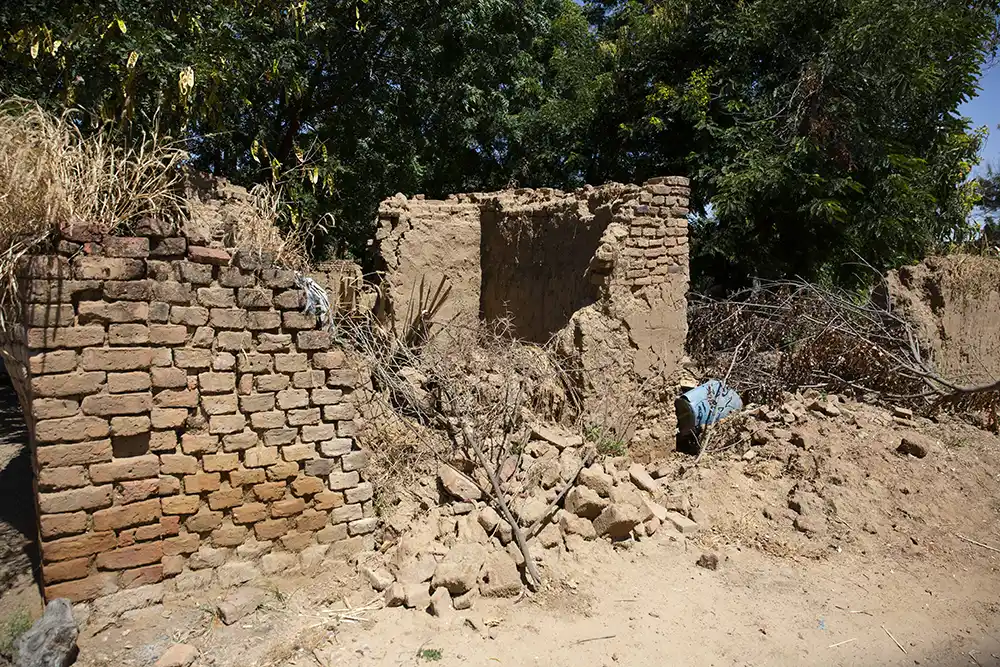
Life as a refugee
And so, Yousif would once again be displaced by violence, this time as a refugee in the neighboring country of Chad. Today, his home is a camp about 50 miles from the border, but a world away from the comforts of his home and country. He says the family is “getting by”, despite the conditions in which they live.
They are among almost 900,000 Sudanese people who are living in Chad as refugees. Another two million have fled to other neighboring countries, including South Sudan, Central African Republic, and Egypt. As many as 8 million people are internally displaced within Sudan itself, many of whom have no way to escape and live in appalling conditions.
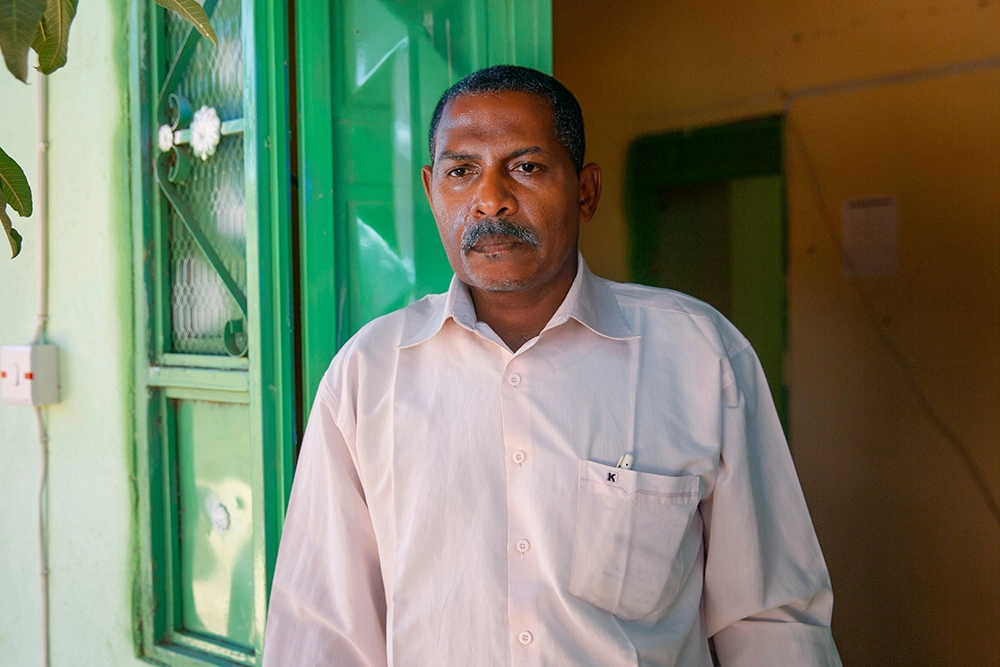
Yousif is resigned to his family’s situation, at least for now. “I do not see us returning to West Darfur any time soon, at least until the situation changes,” he says. Asked what he misses most, he replies “We miss having enough food, having a bed with a mattress, and proper clothes. I miss being able to work and support my family. But the thing I miss the most is having an education for my kids. For me, that is the most important thing – education is the future of my children.”
*NAMES HAVE BEEN CHANGED AND YOUSIF'S APPEARANCE HAS BEEN DIGITALLY ALTERED FOR SECURITY REASONS..

